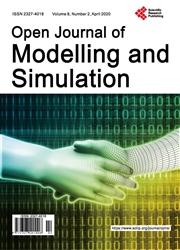Bayesian Variable Selection for Mixture Process Variable Design Experiment
引用次数: 1
Abstract
This paper discussed Bayesian variable selection methods for models from split-plot mixture designs using samples from Metropolis-Hastings within the Gibbs sampling algorithm. Bayesian variable selection is easy to implement due to the improvement in computing via MCMC sampling. We described the Bayesian methodology by introducing the Bayesian framework, and explaining Markov Chain Monte Carlo (MCMC) sampling. The Metropolis-Hastings within Gibbs sampling was used to draw dependent samples from the full conditional distributions which were explained. In mixture experiments with process variables, the response depends not only on the proportions of the mixture components but also on the effects of the process variables. In many such mixture-process variable experiments, constraints such as time or cost prohibit the selection of treatments completely at random. In these situations, restrictions on the randomisation force the level combinations of one group of factors to be fixed and the combinations of the other group of factors are run. Then a new level of the first-factor group is set and combinations of the other factors are run. We discussed the computational algorithm for the Stochastic Search Variable Selection (SSVS) in linear mixed models. We extended the computational algorithm of SSVS to fit models from split-plot mixture design by introducing the algorithm of the Stochastic Search Variable Selection for Split-plot Design (SSVS-SPD). The motivation of this extension is that we have two different levels of the experimental units, one for the whole plots and the other for subplots in the split-plot mixture design.混合工艺变量设计实验的贝叶斯变量选择
本文讨论了分离式混合设计模型的贝叶斯变量选择方法,使用吉布斯抽样算法中的Metropolis-Hastings样本。由于通过MCMC采样改进了计算能力,贝叶斯变量选择易于实现。我们通过介绍贝叶斯框架来描述贝叶斯方法,并解释了马尔可夫链蒙特卡罗(MCMC)抽样。采用Metropolis-Hastings within Gibbs抽样法从已解释的完全条件分布中抽取相关样本。在有工艺变量的混合实验中,响应不仅取决于混合组分的比例,还取决于工艺变量的影响。在许多这样的混合工艺变量实验中,时间或成本等限制因素禁止完全随机选择处理方法。在这种情况下,随机性的限制迫使一组因素的关卡组合被固定,而另一组因素的组合被运行。然后设置第一个因素组的新水平,并运行其他因素的组合。讨论了线性混合模型中随机搜索变量选择的计算算法。通过引入split-plot design随机搜索变量选择算法(SSVS- spd),将SSVS的计算算法扩展到适合分块混合设计模型。这个扩展的动机是我们有两个不同级别的实验单元,一个用于整个地块,另一个用于分裂地块混合设计中的子地块。
本文章由计算机程序翻译,如有差异,请以英文原文为准。
求助全文
约1分钟内获得全文
求助全文

 求助内容:
求助内容: 应助结果提醒方式:
应助结果提醒方式:


